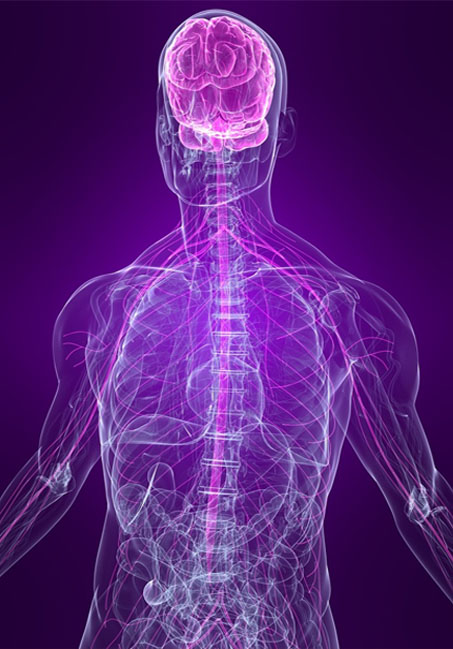
The gut-brain is a superhighway with many lanes where information is continuously flowing between the brain in the head and the brain in the belly. Mental and emotional stress triggers physical responses that affect the gut, while disturbances in the microbiome – the colony of microorganisms in the gut – affect the functioning and health of the brain.
Every day, toxins inside and outside the body damage our gut-brain. They come from the foods we eat, the water we drink, and the air we breathe. Our bodies contain over 600 varieties of microbes that come from the outside world, outnumbering by ten to one the cells that are strictly native to us. Small wonder so many of us have digestive and immune disorders: our bodies are overwhelmed by the toxic load we’ve placed on them.
Our ancestors were largely protected from these challenges. For hundreds of thousands of years, the earth was able to accommodate changes brought about by human intervention. That changed, however, as we started to mine natural products like lead and mercury, and introduce them into our homes – and bodies – through everyday products like paint, bathtubs, light bulbs, lead pipes, and dental fillings, and more recently through contaminated fish and seafood. Mercury is a known neurotoxin, and both lead and mercury have been implicated in developmental problems like learning disabilities and ADHD. Metals like lead and mercury are stored in body fat, and nearly 60 percent of the brain is made up of fat.
In the last century or so, we’ve released thousands upon thousands of man-made chemicals into the environment. Data on how these chemicals affect us are scarce: of the 82,000 chemicals approved for use in the United States, only a quarter have been tested for their effect on humans.
The havoc we’ve created with man-made chemicals reverberates throughout the food chain. But it may be matched by another, even more insidious threat in the foods we eat every day. Much of the toxic overload in our guts comes from genetically modified foods. In most cases, we don’t even realize toxins are on the menu. Scientists are increasingly altering the DNA of foods and food crops to create products that will last longer, be more resistant to disease and pests, and look and taste better.
In addition to genetic engineering, we’re faced with new diseases caused by widespread reliance on a grain-based diet. One of the problems is that the wheat we’re eating is not the same wheat people ate even 75 years ago. The post–World War II green revolution introduced a high-yield dwarf wheat containing 20 times more gluten (a protein that gives dough its elasticity) than the old European strains, thereby altering the composition of the bread we’re consuming. The dramatic increase in celiac disease – a debilitating autoimmune disorder in which ingesting gluten damages the gut – is likely related to this major change in our diets.
The harsh truth is that we have all become gluten intolerant to a surprising degree because the human digestive system hasn’t evolved to function well on a grain-based diet. Grains have become toxic to many of us, and our grain-rich diets are damaging the gut-brain.
But the deadliest toxin found in nearly every kitchen in America is sugar. The typical American adult consumes 150 pounds of added sugar a year. Processed foods are sources of much of this amount. Even foods we don’t think of as sweet – like catsup, peanut butter, and yogurt – often contain sugar or substitutes like aspartame, saccharine, sucralose and high fructose corn syrup. Artificial sweeteners have been linked to type 2 diabetes.
Food cravings – particularly for sugary junk foods – can be traced to the gut-brain. You may think you’re gorging on chocolate cake or tortilla chips because you love the taste, but the real reason is that the yeast, fungi, and bad bacteria in your gut thrive on sugar, and to get their fix they bring on cravings. Sugary foods and carbohydrates stimulate the same centers in the brain that are stimulated by drugs like heroin and cocaine by releasing the neurotransmitter dopamine, which triggers a pleasure response.
Sugar in all forms (except honey) reduces levels of BDNF, brain-derived neurotrophic factor, a hormone that triggers the growth of new neurons and stem cells in the brain, repairing crucial brain structures. It is even thought that the connection between diabetes and Alzheimer’s is attributable to the typical Western diet. Inadequate BDNF production is also associated with depression.
While it’s virtually impossible to avoid environmental toxins, we can try to avoid GMOs by shopping our local farmer’s market. Detoxifying from sugar and gluten requires cutting out fruit juices, fruits with high sugar content, root vegetables and all processed grains. If this seems unnecessarily strict, note that the minimum daily requirement of processed carbohydrates is zero.
Learn more about detoxing and healthy eating in my book, One Spirit Medicine.
.







